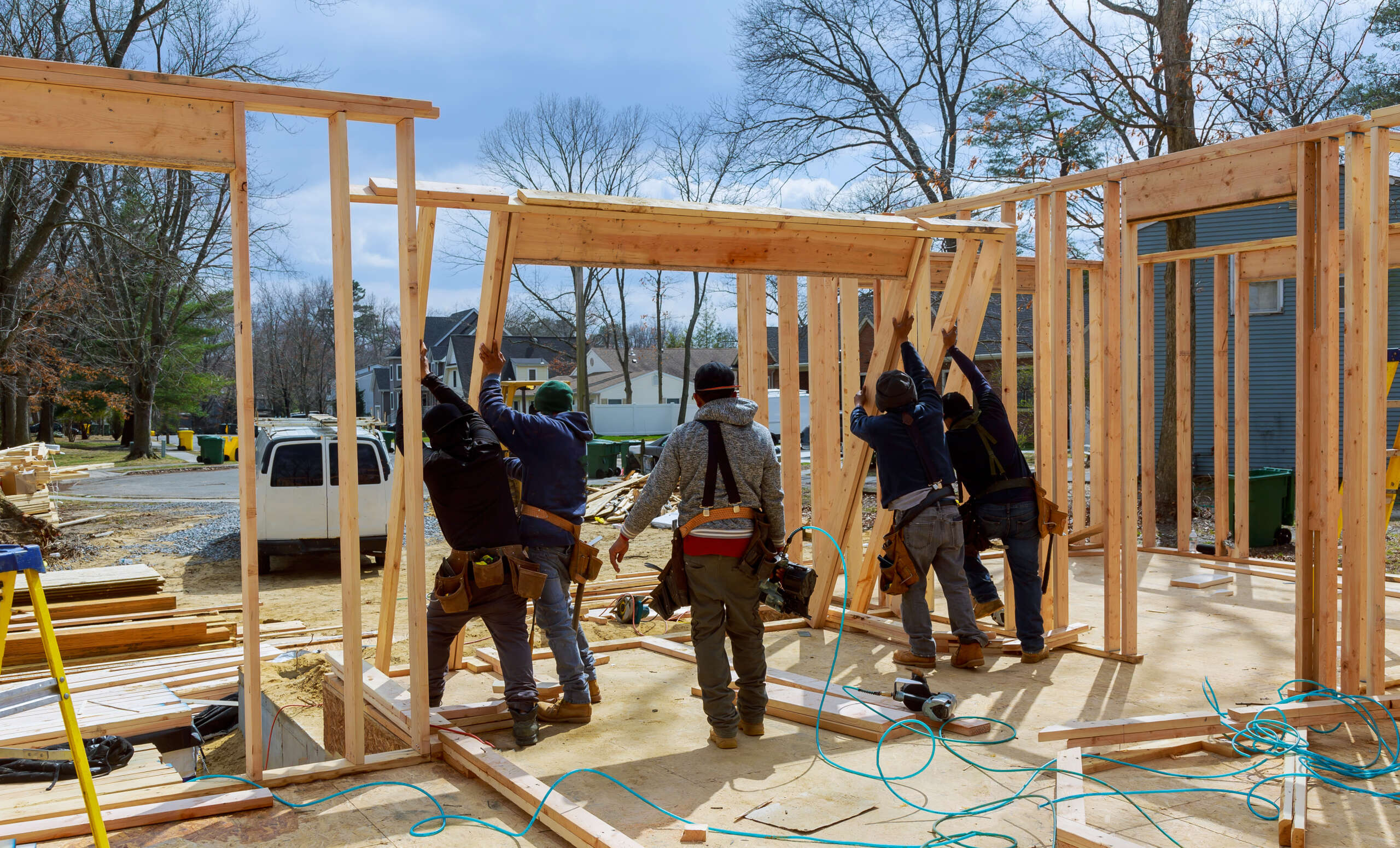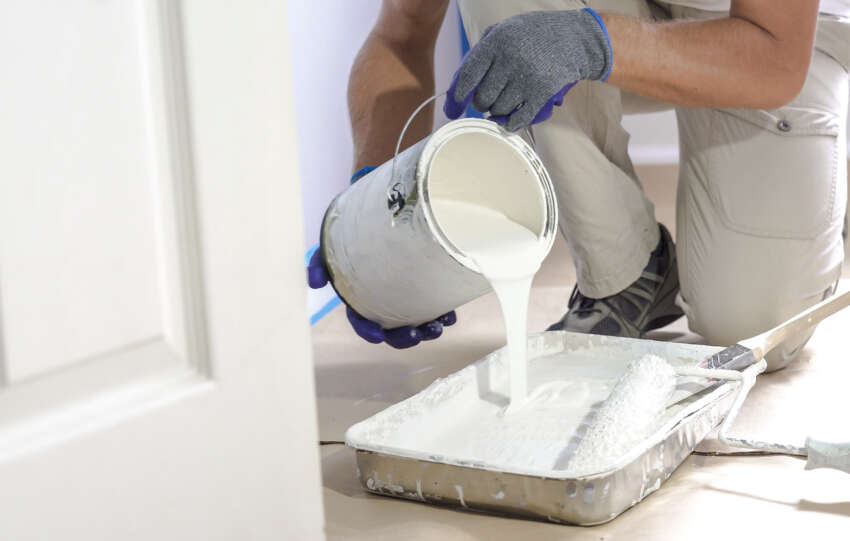How to Start a Construction Company in 2026: 10 Simple Steps

Starting your own construction company can feel like a huge mountain to climb, but it doesn’t have to be overwhelming. Whether you’ve been working in construction for years or you’re ready to take the leap and build something of your own, knowing the right steps can make all the difference.
If you’ve been wondering how to start a construction company, you’re in the right place. I’m going to break it down into 10 simple, straightforward steps so you can go from idea to opening day without getting stuck.
Table of Contents
1. Nail Down Your Business Plan
Before you do anything else, take some time to write a clear business plan. Don’t stress over making it perfect, think of it as your roadmap. Here’s what to include:
- What kind of projects will you focus on? Will you specialize in residential remodeling, commercial construction, or maybe green building? Knowing your niche will help you market yourself and buy the right equipment.
- Who are your customers? Homeowners, developers, businesses? Understanding your target audience shapes your services and pricing.
- Startup costs and funding. Calculate expenses like licenses, insurance, equipment, tools, marketing, and salaries. Then decide if you’ll self-fund, take a loan, or look for investors.
- Revenue and growth goals. How many projects do you need each month to break even? What’s your plan to grow?
You can find free business plan templates and guides through sites like the Small Business Administration (SBA) or SCORE, a nonprofit that helps entrepreneurs.
2. Pick the Right Legal Setup
Your business structure affects how much you pay in taxes, your personal liability, and your paperwork. Here’s a quick overview of common types:
- Sole Proprietorship: Easiest to set up, but offers no personal liability protection. Your personal assets (like your car or home) could be at risk if the business is sued.
- Limited Liability Company (LLC): A popular choice because it protects your personal assets and keeps taxes simple. It’s flexible and well-suited for small construction businesses.
- Corporation (S-Corp or C-Corp): More complex and best for larger businesses or those planning to raise significant capital.
You can register your business structure through your state’s Secretary of State website. Many states have online portals to make this quick and easy. If you want personalized advice, consider consulting a local business attorney or accountant.
3. Register Your Business and Get Your EIN
Once you pick your business name and structure:
- Register your business name with your state to make it official. This may involve filing for a DBA (“doing business as”) if you want to use a name other than your own.
- Apply for an Employer Identification Number (EIN) from the IRS. This is basically your business’s social security number. It’s free and easy to apply for online through the IRS website.
You’ll need your EIN to open a business bank account, file taxes, and hire employees.
4. Get Licensed and Insured
Most states require construction companies to have a contractor’s license. The process varies by state but generally includes:
- Meeting minimum experience requirements (often 2-4 years)
- Passing a trade exam and a business/law exam
- Providing proof of insurance and financial stability
Check your state’s contractor licensing board website for detailed requirements and how to apply. For example, California contractors go through the Contractors State License Board (CSLB), while Texas contractors check with the Texas Department of Licensing and Regulation (TDLR).
Insurance is just as important. At a minimum, you’ll need:
- General Liability Insurance: Covers accidents or property damage.
- Workers’ Compensation Insurance: Required if you have employees, covers their medical bills and lost wages.
- Commercial Auto Insurance: If you use vehicles for your business.
You can get insurance quotes from local brokers or online marketplaces like NEXT. Don’t skimp here; insurance protects your business and is often required to win contracts.
5. Set Up Your Business Finances
Opening a business bank account is a crucial step. It helps keep your business money separate from your personal accounts, which makes bookkeeping and tax filing easier.
- Choose a bank that offers good small business support.
- Set up a business credit card to manage expenses and build credit.
- Use accounting software like QuickBooks, FreshBooks, or Xero to track income, expenses, invoices, and taxes. To streamline bids and client approvals, tools like the Joist estimates feature enable contractors to build branded, itemized estimates, reuse templates, and collect signatures.
If bookkeeping feels overwhelming, hiring a part-time bookkeeper or accountant early on can save you money and headaches later.
6. Get the Right Equipment and Tools
What you need here depends on your specialty. For example:
- A residential remodeler may need power tools, ladders, and smaller equipment.
- A general contractor might need access to trucks, heavy machinery, or scaffolding.
If buying equipment outright isn’t in the budget, leasing or renting from companies like United Rentals or Sunbelt Rentals can help you get started without huge upfront costs.
Additionally, tracking your deliveries can make managing equipment and tools much easier. Using https://packyapp.com/ to track all your packages in one spot ensures that you receive your tools, machinery, and other essential materials on time from over 800 carriers worldwide, including UPS, USPS, FedEx, and DHL.![]()
Don’t forget to invest in safety gear, including hard hats, gloves, and boots, to keep you and your team protected and compliant with OSHA standards.
7. Build a Reliable Team
Even if you plan to start small, you’ll likely need help on bigger jobs. Consider:
- Hiring skilled employees or apprentices
- Working with trusted subcontractors for specialized trades (electricians, plumbers, etc.)
- Checking references carefully to ensure reliability and quality work
You can find candidates through local trade schools, online job boards like Indeed or LinkedIn, or through industry networking events.
Remember, your team’s quality reflects directly on your company’s reputation.
8. Create a Marketing Plan
Getting your first customers is often the hardest part. Start simple:
- Build a clean, easy-to-navigate website that shows your services, past projects, and contact info.
- Claim your Google Business Profile to appear in local searches and collect reviews.
- Use social media platforms like Instagram or Facebook to showcase your work and connect with your community.
- Network in person by joining local business groups, chambers of commerce, or trade associations.
Word of mouth and referrals are huge in construction, so ask satisfied clients for testimonials and referrals.
9. Understand Permits and Regulations
Construction projects nearly always require permits and inspections. The rules vary by city and state, so:
- Check with your local building department or city hall to learn what permits you need for each project.
- Make sure you understand zoning laws and building codes.
- Stay organized by tracking permit applications and inspection schedules carefully.
Getting permits right avoids costly fines and delays, and shows clients you’re a pro who follows the rules.
10. Start Small and Build Your Reputation
Don’t rush into taking on massive projects before you’re ready. Start with smaller jobs where you can deliver top-quality work and earn positive reviews.
Over time, those good reviews and strong relationships will open doors to bigger contracts and steady growth.
Be patient, stay organized, and keep learning. Construction is a tough business, but with persistence, it can be incredibly rewarding.
Final Thoughts
Knowing how to start a construction company means more than just having construction skills. It’s about understanding the business side, licenses, insurance, finances, marketing, and building a team.
Follow these 10 steps, and you’ll set yourself up for success in 2026 and beyond. Yes, it will definitely take a bit of time and work, but the foundation you build today will support your business for years to come.
FAQs About How to Start a Construction Company
1. What licenses do I need to start a construction company?
Most states require you to have a contractor’s license, which often involves passing an exam and demonstrating experience. You may also need specialty licenses depending on the type of work (electrical, plumbing, HVAC). Always check your state and local licensing board for exact requirements.
2. How much does it cost to start a construction company?
Startup costs vary widely depending on your niche and location but expect to spend anywhere from $10,000 to $50,000 or more. This includes licensing fees, insurance, equipment, tools, marketing, and initial payroll.
3. Do I need insurance to start a construction business?
Yes. At minimum, you should have general liability insurance and workers’ compensation if you have employees. Insurance protects your business from lawsuits, accidents, and property damage claims.
4. How do I get clients for my construction company?
Start by building a website and claiming your Google Business Profile. Networking with local real estate agents, developers, and trade associations can also lead to referrals. Positive reviews and word of mouth are crucial for growth.
5. Can I start a construction company without experience?
While some states require proof of experience to get licensed, you can partner with experienced contractors or hire skilled supervisors. Gaining experience on the job or through apprenticeships before starting your own company is highly recommended.
Starting a Business?
Top 10 Most Successful Businesses to Start
Explore the most profitable businesses to start and scale in 2024.
🏛️How to Open an LLC: Step-by-Step Guide
Learn the process of forming an LLC and protecting your business.
💼Guide to Becoming a Solopreneur
Discover how to start and run a successful business on your own.







